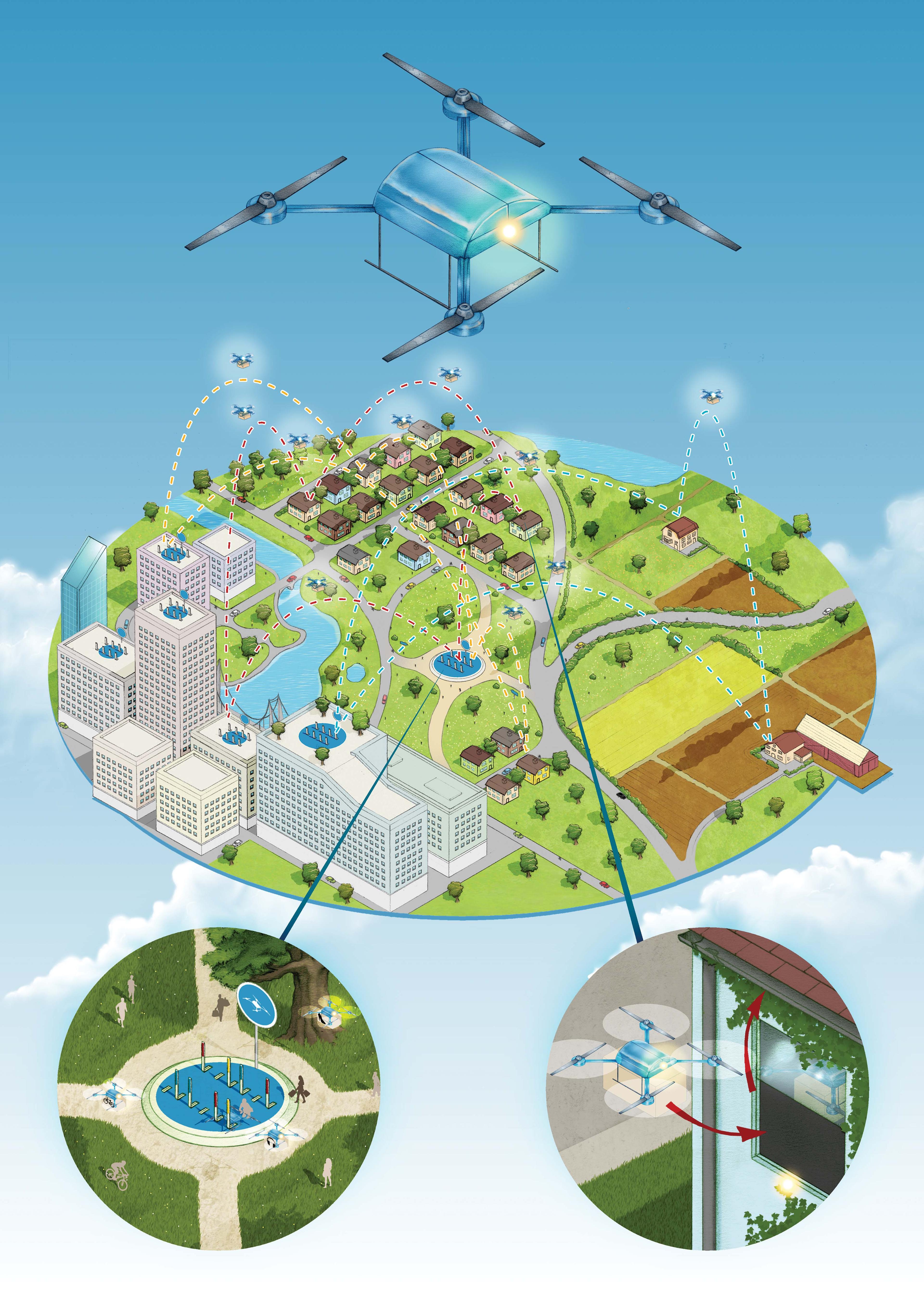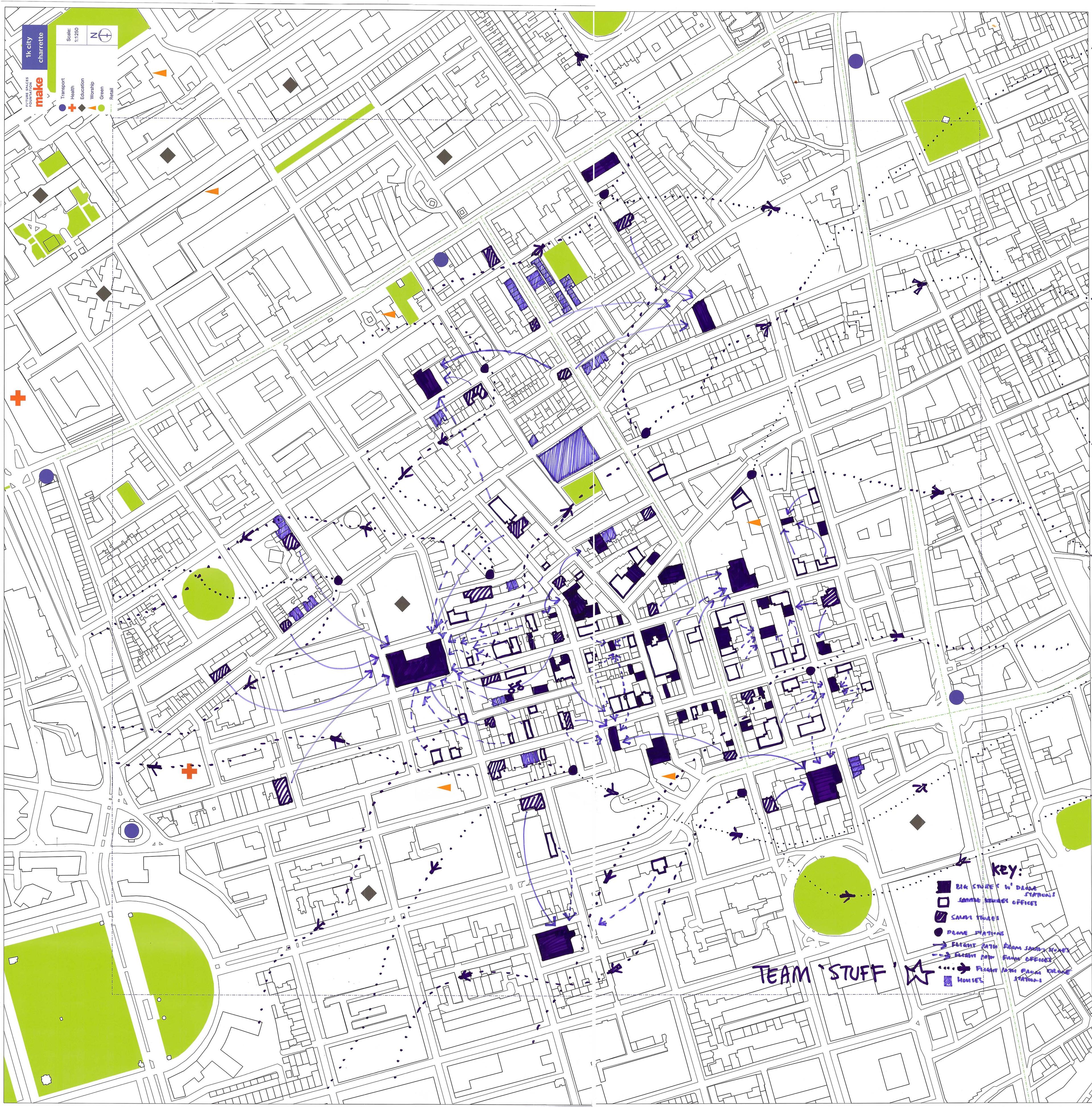For this proposal, we defined ‘stuff’ as people’s material possessions. We looked at a more sustainable approach to the end of life of stuff – whether it’s books, furniture, clothes or electrical appliances – on the basis of sharing: borrowing, exchanging, giving, selling. In this way, stuff can exist for a longer period of time, and the quantity of stuff can remain constant to some degree.
How could we formalise or physicalise this? We needed both a social and a physical structure. First, we proposed an exchange network, a means of connecting people who shared the same intention. This could take on numerous forms: social media, free subscription to an app, email notifications, an electronic or smart membership card. Then we devised a physical manifestation of the network. So much of our time in London is spent commuting; we are in and out of Tube stations, searching for train platforms and waiting at bus stops. Why not use transport interchanges as a means of sending or receiving our stuff?
From here we developed the idea of ports that take the form of combination of a postbox and a Santander cycle hire stand and can be used to deposit or collect the stuff. Finally, we figured that the quickest way to travel was by flight – specifically, drones, with catchment areas based on short distances of travel defined and mapped out throughout London.
This alternative to traditional forms of recycling envisages a more environmentally friendly and economical way forward – a collaborative consumerism. We start by exchanging our stuff with others, and perhaps in the future we can better exchange services, talent and ideas.

